Alumni Features and Careers
Aline Damas '20
"My English concentration journey was fulfilling."
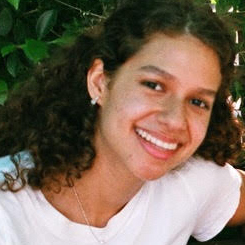
Before I arrived at Harvard, I had every intention of concentrating in biology. However, after my first semester, which included two English courses: Marjorie Garber's “Shakespeare, the Early Plays” and Hum 10a, there was no doubt that English would be my concentration. These were courses that expanded my knowledge base of English literature and widened my perspective by introducing me... to works across time and geographic regions, demanding that I question everything I thought I knew about classic texts and what it even meant for a text to be “classic.”
Though all my assignments were instructive, I found myself learning and appreciating the texts most during office hours with my erudite professors and thoughtful teaching fellows. They challenged me to integrate the texts across academic disciplines and to re-read extensively, examining details both included and omitted. Every single class I took after that, from “The Empire Writes Back: Contemporary Fiction and the Booker Prize” to “Medieval Women and the Problem of Knowledge,” further cultivated my research and analytic skills.
My English concentration journey was fulfilling, however, what capped it was: “Jane Austen’s Fans and Fiction,” my favorite course at Harvard. The questions and theories that Professor Deidre Lynch proposed in in our lectures inspired my undergraduate thesis: “As in a Theatre: The Power of Theater in Cecilia and Mansfield Park.” I am so grateful to Prof. Lynch and my graduate supervisor Dr. Alex Creighton for advising me during this lengthy process. Both gave me individualized direction and support that was essential to my final product. Of my accomplishments (not that there are that many!) it is still the one that I am most proud of to-date.
am now delighted and grateful to be working in film/TV development as a creative assistant at Netflix Animation, supporting the team that is bringing to screen some beloved children’s books. My job includes evaluating materials, writing thoughtful and actionable notes on scripts, thinking deeply about story and character arcs, and helping with the writer’s room selection process.
I am now daily applying and adapting the close-reading skills I acquired through the English department’s courses. The research skills I gained during the writing of my thesis are also critical to my work, as we are a team committed to authentic storytelling. My company asks us to continually abide by a system of clear communication, wise judgment, and continued curiosity
—these are all values that I earned thanks to this wonderful department.
Natalie Hodges '19
"To concentrate in English is to change your life."
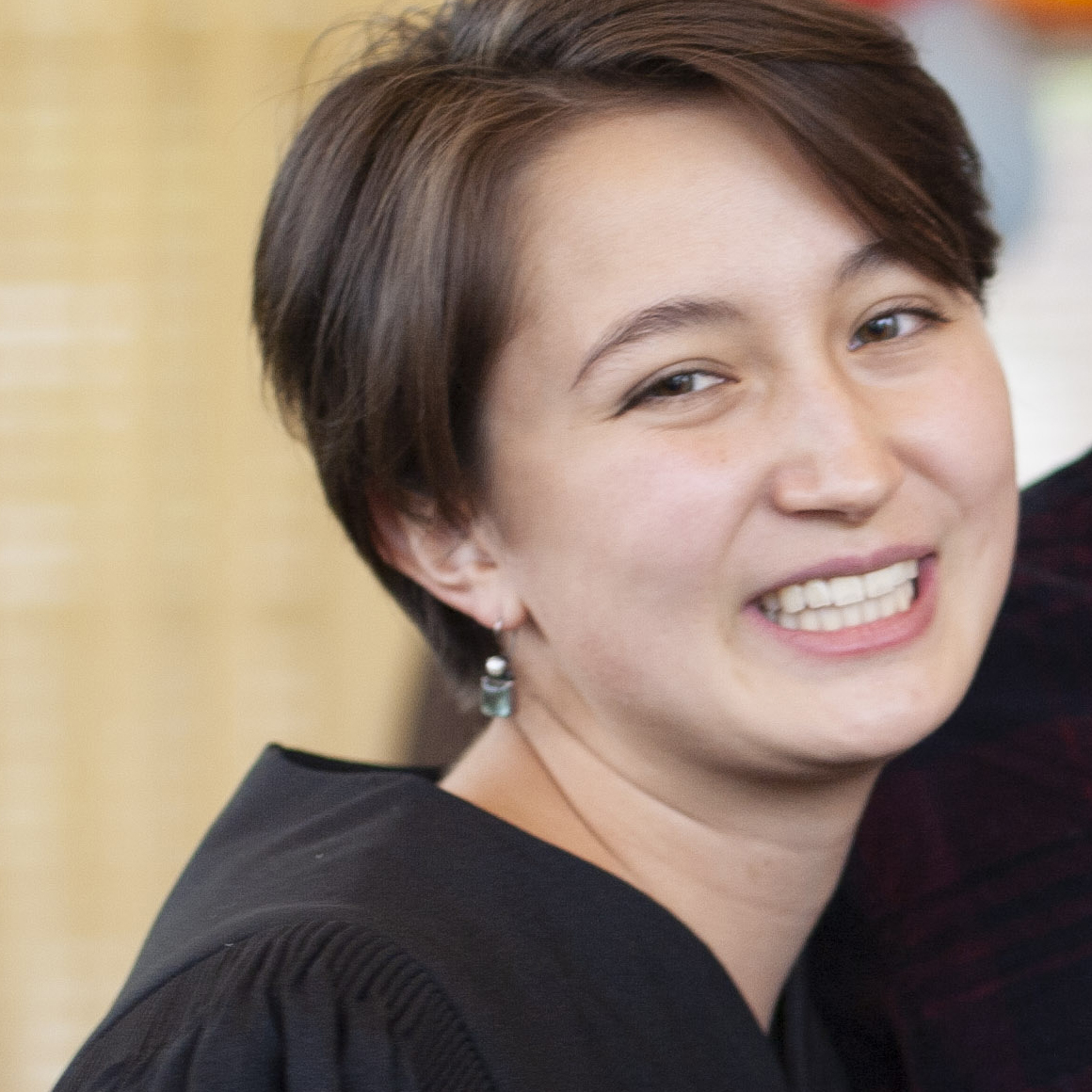
“Here there is no place that does not see you,” writes Rainer Maria Rilke in his poem “Archaic Torso of Apollo.” “You must change your life.” To me, these lines offer a perfect description of the English Department at Harvard, at least as I experienced it. I began my undergraduate career knowing I wanted to study English—as a high school teacher once advised me, “It’s the subject with the best homework”—but I could not have imagined what the concentration would come to mean to me during those four years and beyond. At the time, I was focused on pursuing a career as a violinist, a childhood dream that felt increasingly unlikely as I got older. Peter Sacks’ and Helen Vendler’s lectures on lyric poetry and Marc Shell’s Shakespeare seminar opened my mind to a different kind of music, one not so bound to the pressures of practice and auditions and performance.There was also the Beowulf seminar in which I felt free to unleash my inner mythology geek, and the Migrations course that challenged me to examine representations of the American Dream; there are courses on Asian-American literature, Black science fiction, gender and representation, and environmental justice, to name just a few of the Department’s current offerings. To my mind, this is what makes Harvard’s English Department truly special: the effort it makes to anticipate and accommodate its students’ interests and needs, and to make them feel seen not only as scholars but as people. I will always be grateful for the generous care of the faculty, teaching fellows, and administrative staff, who gave abundantly of their time and expertise whenever I had a question or felt uncertain about my way forward.
Junior year, my life changed again when I took Michael Pollan’s workshop on the personal essay, my first structured experience with creative writing. Because of that class, I pivoted to the creative writing track and ended up writing a nonfiction thesis—a series of essays about music and the science of time—which I eventually developed into a book manuscript. It was in Michael’s course that I glimpsed, for the first time, a different possibility for what I might want out of a career and a life. I still love playing violin, but since graduating I have pursued writing and teaching full time, and my thesis, now a complete essay collection, will be published in March 2022.
An English degree is valuable because it teaches you how to listen. Analyzing literature challenges you to take into account different perspectives and interpretations, readings of a given situation that may diverge from your own. This skill has helped me enormously as a teacher of students from many different backgrounds, and I believe that it is critical for any field. You can learn so much about a student or classmate or coworker from the way they respond to a text—whether that be a poem or a tricky word problem, a scientific study or a legal document—because every person’s way of seeing, interpreting, and problem-solving is informed by their past experiences and individual identity.
No matter what career path you end up choosing, to concentrate in English is to change your life. It invites you to read critically and joyfully; to write courageously; to be comfortable with contradiction and to appreciate nuance; and, more than anything, to search for beauty and to delight in sharing it with others.
Dianisbeth Acquie '16
"I learned how to engage analytically with the written word."
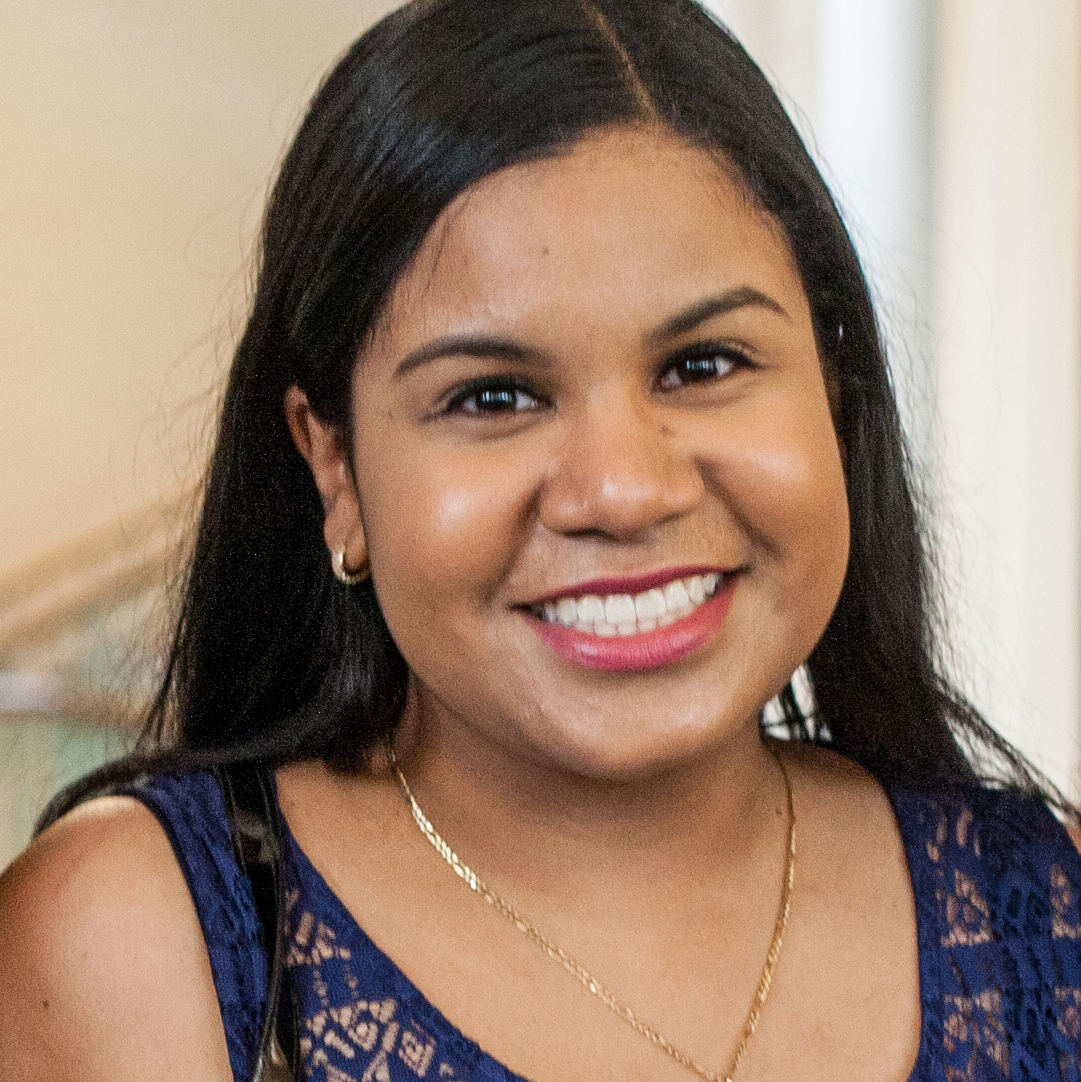
One of the most rewarding decisions I made during my time as a Harvard undergraduate was choosing to concentrate in English. I had entered Harvard knowing that I was generally interested in the humanities but unsure about how to narrow my interests. Taking a Shakespeare class with Professor Garber and one on American Modernism with Professor Alworth in my sophomore fall made me realize that I wanted to spend the majority of my time at Harvard in the Department of English. These classes provided a glimpse at the wide-ranging experiences that I could—and would—have as an English concentrator.For three years, I had the opportunity to contemplate the racial dynamics of Americanah, study critiques of colonialism in Wole Soyinka’s work, and analyze the gendered landscape against which Edith Wharton wrote The House of Mirth. I wrote short stories in Professor Kincaid’s fiction writing seminar and performed spoken word for Professor Kim’s World Theater class. I was able to explore Latinidad in literature and think about how my identities coalesced with and diverged from those of the authors that I studied. My senior thesis was a novella that considered questions of race, gender, colonialism, and migration. It allowed me to weave the many threads of my time as an English concentrator together.
As a sophomore, I understood how much I would enjoy spending years devouring prose and poetry in the Department of English. By the time I graduated, I understood more about how enriching my experience had been as an English concentrator. Yet I did not realize until law school how important the skills that I learned during my time as an undergraduate would become as my career progressed. I have carried many of the tools and techniques that I learned in the Barker Center over to Harvard Law School, where I am a third-year student. As a student in the Department of English, I learned how to engage analytically with the written word. Writing critical and creative papers alike taught me how to appreciate diction and syntax. I learned how to read works from over a thousand years ago and connect them to themes that still influence contemporary literature. Many of these skills are transferrable. There are close parallels between interpreting statutes and interpreting dense prose. Parsing old cases is not dissimilar from studying early American literature. Though legal writing is a far cry from the elegant language that marked my studies of English, I exercise many of the same skills that I learned as an English concentrator in my legal studies. Choosing precise and evocative language has never been more crucial. Creativity is still central to all the writing I do. I am grateful to the many excellent professors that I had in the Department of English for cultivating my love of language – a love that will persist long after I leave Harvard’s campus and enter the legal field.
Nicole Morreale '13
"Everything about the studies thrilled me and the
department made me feel so at home..."

When I was applying to college, I had my plan all figured out. I was going to major in neurobiology and figure out how the brain worked. My younger brother has autism and, despite my not having any real passion for the sciences, I wanted desperately to be a research scientist and find a way to unlock the secret to communicating with him. Even though science wasn’t my thing, I did like analysis and problem-solving, so I thought I could learn to love a college major that had those components to it. I knew that my real love was literature, but I had convinced myself that I would be unable to make a difference or find a “real job” if I focused my college career on books. Reading was a hobby, I thought. Not something to make the center of your academic career.
Fast forward to the middle of freshman fall. I was struggling to keep my head above water in Life Sciences 1a. The weed-out course was doing its job, because I was seemingly incapable of keeping the formulas straight or remembering the names of all of the amino acids. In order to have a well-rounded courseload, I was also taking Professor Engell’s English Romantic Poetry course that semester. That class became my escape. I lost myself in the sublime, became best friends with Keats and Wordsworth. Even scanning lines for meter and rhyme was exciting and beautiful to me; analyzing the technicalities that made a poem truly extraordinary was as inspiring as the words themselves. I found the level of thought that went into every decision and the evocative, meaningful language that resulted to be utterly fascinating. This was more than just reading. This was critical thinking and analysis. This was a formula I understood. By the time the course was finished, complete with three-hour-long final exam, I was hooked. I knew my concentration would be English. I wasn’t sure what I would do with it or how it would impact my career choices, but I knew that I would regret it if I didn’t concentrate in English and continue to work on analyzing the puzzles inherent in the written word.
From then on, I immersed myself in the English concentration. Everything about the studies thrilled me and the department made me feel so at home that I wondered why I ever wanted to concentrate in anything else. The countless hours that I spent in the Barker Center letting the words of Shakespeare, Hemingway, and the Beowulf poet wash over me like the warm sunlight shining through the cafe windows taught me how to think critically, how to search for meaning, and how to write to convince others of the meaning I found. These skills carried me through my undergraduate career and into business school.
My marketing focus in business school required careful analysis, creative thinking, and an ability to approach problems from as many different angles as possible depending on who my audience was. I learned all of these skills and more from my concentration. Throughout the pursuit of my MBA, I was able to edit group and individual projects for meaning as well as for mechanics and offer a fresh, creative perspective during meetings. Going to business school allowed me to use the analytical skills and search for meaning that I had come to love so much for the strategic purpose I had craved from the start. My quest for better ways to communicate with others, and with my brother, will never come to an end, but Harvard’s English program gave me the skills and the fire I need to constantly improve and evolve my way of thinking as I encounter new information. I will always be able to use these skills both personally and professionally, and for that I am forever grateful.
Samantha Gridley '12
"I can’t imagine what my career would look like without the foundation
and direction that my English concentration gave me."

Before I began my freshman year at Harvard, I knew I wanted to be a doctor. When I arrived on campus, the list of concentrations I was considering fit nicely within the confines of the traditional pre-med cookie cut. I was en route to a Neurobiology degree when I took Matthew Kaiser’s class “Literature and Sexuality” to fulfill a Core (now called Gen Ed) requirement my sophomore fall. I came back to my dorm room every Tuesday and Thursday raving about how much fun lecture was and how witty my professor and TF were. After weeks of this, my roommate asked me why I didn’t just concentrate in English since I seemed to like it so much. I thought that English wouldn’t fit with all my premed classes, but she had me write out the requirements, and it did! I was sold, and it was one of the best decisions I made at Harvard. If you are considering medicine as a career, my best advice is to take classes that you really enjoy—no matter what the subject—while you’re in college. This is your time to explore your interests, to read obscure plays, to devote months to The Picture of Dorian Gray, to write! You won’t be sorry that you did.
After graduating I worked as a Clinical Research Assistant at Seattle Children’s Hospital, and my job involved talking to patients and families about their child’s quality of life and their experience at the hospital. The parallels between these patients’ narratives and the fictional narratives I had pored over at Harvard surprised me; they had unexpected plot twists (physician errors, relapsing cancer, unlikely cures from clinical trials), complex characters, and layers of back-story behind each vignette. Studying English made me attentive to language, which was an invaluable tool in dissecting these patients’ stories and perspectives on illness. I was then able to help translate their stories into quality improvement goals for the hospital, which I think had a positive impact on future patients’ narratives.
After Seattle, I headed to Vanderbilt for medical school, where I just completed my first year. Surprisingly, one of my interests that I discovered through English at Harvard has transformed into a passion in medical school that is shaping my career. Like I said above, I loved Matthew Kaiser’s class “Literature and Sexuality,” and my junior tutorial was similarly themed: “Victorian Scandal: Immorality and Obscenity in 19th Century Literature.” I was enthralled by what made certain bodily actions “obscene” or taboo and why society perceived them in that way. In medicine I’m channeling that fascination with the taboo into Adolescent Medicine. I’ve found that I enjoy being the person who can talk candidly with kids and teens about embarrassing or scary changes in their body and make them no longer seem so mysterious and foreign. This year I helped teach a sex education class to fifth graders, and it was one of the most rewarding things I have ever done. It’s fun to answer the questions that kids are dying to ask but may never have had anyone tell them it was ok to ask before. Plus, there’s comedy and beauty discussing sex and sexuality, especially when you’re starting from square one with kids who are on the brink of puberty but still have many gaps in their knowledge. I felt honored to be tasked with introducing these girls to a topic that so few parents feel comfortable broaching with their kids, even when it’s so important! I’m not sure I would have discovered this as my niche in medicine without the English classes I took that directed me there.
I’ve also gotten very involved with LGBTI advocacy and lead a student group called LGBT MD at Vanderbilt. My interest in serving this population arose from the English classes and Women and Gender Studies electives that I took at Harvard. After reading stories with trans, gay, and intersex protagonists, I became curious about gender theory and took two WGS courses as electives. This in turn exposed me to injustices against LGBTI people in the medical field, which both angered and inspired me to advocate for this population within medicine. My English degree came in handy in this advocacy work recently: two physicians asked me to contribute a chapter to a book they’re writing after they found out I studied English at Harvard. The book is a clinical guide for physicians who serve LGBTI patients, and my chapter gives evidence-based advice about providing care for international and immigrant LGBT patients specifically. I’ll be happy when we publish later this year and my research can translate into better care for that population.
I can’t imagine what my career would look like without the foundation and direction that my English concentration gave me. Going with your gut and studying what you love will undoubtedly serve you well, even if at the start you can’t see the details of where it’s bringing you!
Amelia Lester '05
"Some of my fondest memories of college revolved
around my time in the English department."
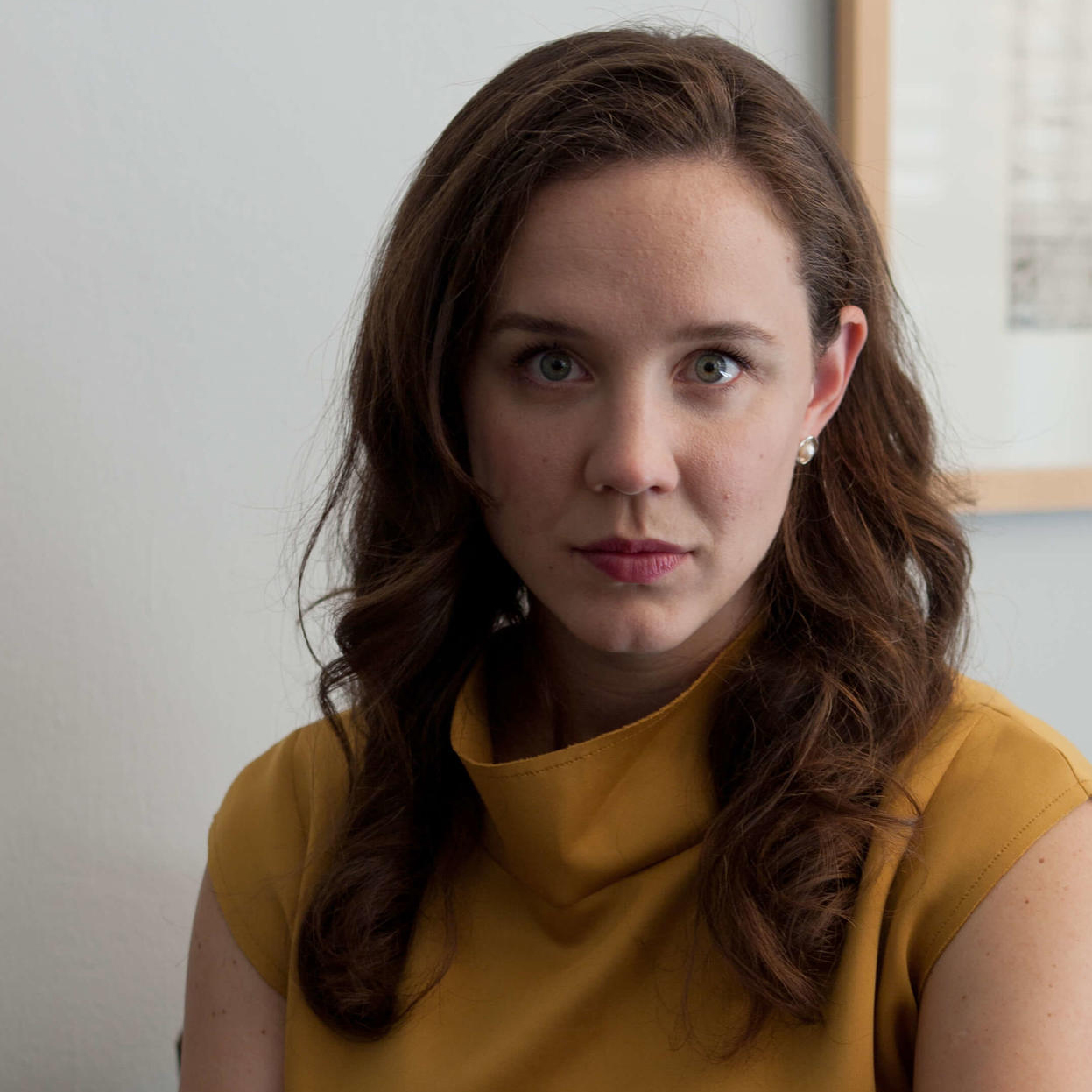
It is a sad fact that for most of us, a long day at the office is not often followed by a spoken reading of “The Faerie Queene.” Which is precisely why I am so grateful for the four years I spent in the English Department at Harvard, where I had the chance to discover Spenser, and Chaucer, and Milton, and Eliot (everyone’s allowed their own idiosyncratic list). This was deeply satisfying in itself, and remains to me the most compelling argument to major in English: for all but the most self‑disciplined among us, or unless you’re pursuing graduate study in the subject, you won’t get this opportunity to discover, and then truly concentrate on, so many masterpieces of the English language again.
Something you will have to do every day in your professional and personal life, however, is read—and write. Which leads to my crassly practical, second-best reason for majoring in English. Perhaps you are interested in reading and writing for a living, and you enjoy learning about other people’s business (this is why novels are inherently fun for nosy people, by the way). You might end up like I did in the media, where expressing yourself succinctly, and helping others to do the same if you are an editor, is everything. It turns out that the best way to become a better writer is to read more, ideally by people who really know what they’re doing. But even if you don’t go into a profession where writing is part of the job, you will still be composing emails, and talking in meetings, and reading the newspaper, and having conversations where getting what you want will depend on expressing yourself clearly—and deciphering what the other person is saying. These are all examples of close-reading, a skill which the English department strives to instill and develop in its undergraduates.
An aside about my own experience, and those of my friends. “Communication skills”—the sort of hackneyed phrase you will cringe about using for the rest of your life thanks to your time in the English department—are even more important these days, because the workforce is changing and industries are transforming. Many of my peers are now doing jobs in the online sphere that didn’t even exist when we graduated less than a decade ago. They were hired not because they had relevant experience, which would be impossible, but because they come across as “smart,” which is to say, as clear thinkers. I got my first job because I published an essay about how I didn’t know how to look for a job, and then got my next job because I sent a cleverly-worded email, or at least what I thought was at the time. This is, improbably, how people get jobs—even their dream job, in my case, working at a magazine I had loved and admired since discovering it in college. So from a purely utilitarian perspective, figuring out how the best writers in our language do it seems a wise investment.
But I hate to use a word like “investment” when talking about the value of an English degree, so I’m now going to quickly pivot to my final reason, which is more sentimental, though no less compelling. Some of my fondest memories of college revolved around my time in the English department: a Monday afternoon seminar on eighteenth-century travel literature in the basement of the Barker Center where we spent weeks on Gulliver’s Travels; reading Naipaul for another seminar, for the first time, at a coffee shop in the Square; a poetry tutorial in which the professor promised we might spend several sessions on just one line, if it warranted it—and we did. There was a lecture class on the American novel which was pure pleasure, and which was intensely annoying to my roommate, an economics major (why did I get to read Wharton when she was doing problem sets?). This is an English department that above all else values the experience of reading, and intimate engagement with the text. It’s probably true that you will never get to discuss property ownership in Shakespeare’s tragedies with such a smart group of people ever again, but you will keep reading. Even if you take up jogging post-college, reading will be the best, most edifying, most enjoyable habit you have. You will even do it after work. And whether or not what you are reading is worthy of inclusion on a Harvard syllabus, because you were an English major, you will be able to explain why.
Leslie Jamison '04
"The English Department was a source ofconstant
challenge and excitement to me."
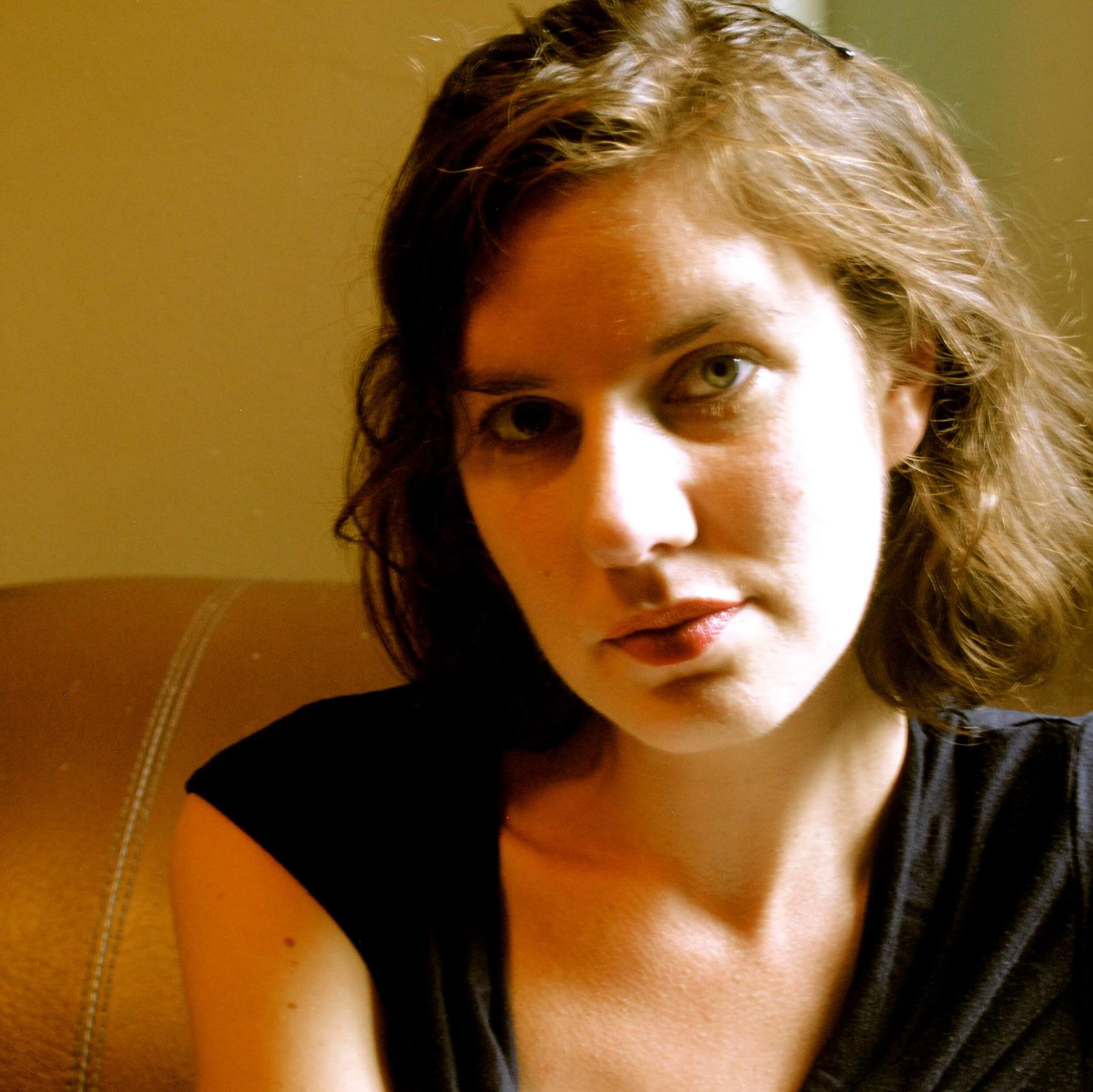
I remember the Barker Center in haunting fragments: the bright Cambridge light, the feeling of walking upstairs eagerly, full of whatever text I was about to discuss; and I remember it so clearly because the English Department was a source of constant challenge and excitement to me: seminars where I felt myself pushed and thrilled, where I sat and spoke and listened in a state of sustained awe of the range of inquiry that the discipline of English can entail. English can mean counting syllables or it can mean thinking about nineteenth-century American prison policy or it can mean trying to figure out a way to transmute grief or joy into lyric expression. It can involve hours poring through old letters in dusty archives. It can involve staying up all night lost in the mysterious and endlessly unfolding world of a book; that bone-bred, basic pleasure.
There is no part of my current professional life that hasn’t been informed and shaped by my experience as an undergraduate English major at Harvard. Since graduating nearly ten years ago, I’ve pursued two advanced degrees in the field (an M.F.A. in fiction from the Iowa Writers’ Workshop and a PhD in English from Yale); taught creative writing and literature at the University level; and published numerous stories and essays in magazines and journals ranging from Harper’s to The New Republic to the San Francisco Chronicle. I’ve published a novel, The Gin Closet, and have a collection of essays forthcoming next year, The Empathy Exams. The habits of mind I learned in the English concentration—to think critically and express myself carefully—have served me well in the worlds of academia and trade publishing alike.
But my professional timeline does very little to communicate what I mean when I say that my time in the Harvard English department “informed and shaped” my current professional life. What I mean is this: at Harvard, I encountered people, students and professors alike, who were absolutely passionate about pursuing the questions that drove them: how did people in eighteenth century Britain imagine foreign lands? How did Emerson experience the death of his son? How do I turn my personal experience of loss into a meaningful act of lyric expression?
I was given the chance to ask questions of my own, and I began to consider the ways literature might answer them. I was given space and time to be excited about literature—its possibilities and its challenges—and I was granted many hours of conversation with some of the smartest people I’ve ever had the pleasure to know. My ideas were challenged and encouraged in meaningful ways; I learned to question myself and follow my instincts—to find some balance between those two imperatives.
While my career has remained fairly overtly connected to the discipline of English, I can say that my undergraduate peers in the English major have gone on to a variety of careers—from finance to law to travel writing—and have felt the rigor and excitement of their lives as English majors continuing to echo across these various spheres. I recently had the pleasure of watching a friend (and fellow Harvard ’04 English concentrator) appear on the Colbert Report, where she was talking—with eloquence, grace, and well-calibrated wit—about her first book.
Part of what I loved about Harvard wasn’t just the chance to engage with passionate minds, but the chance to witness and participate in the formation of passionate communities—spaces in which people didn’t arrive fully formed but were formed, shaped and challenged, by everyone around them. The Harvard English department was and is an extraordinary community of passion; I feel lucky to have been part of it.